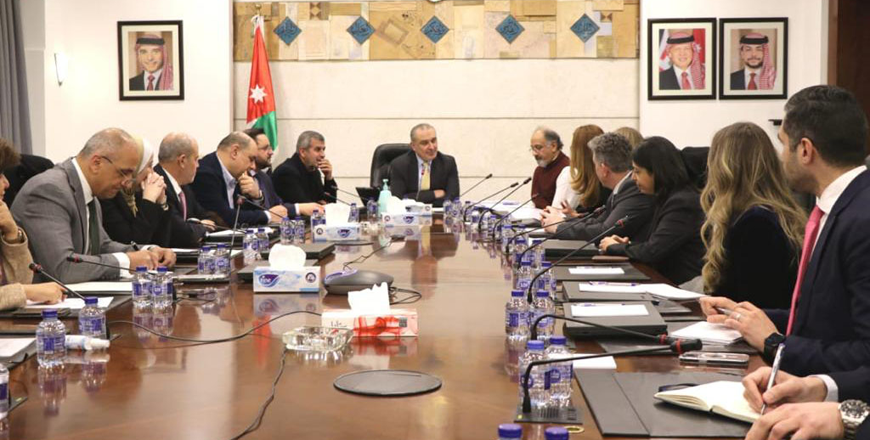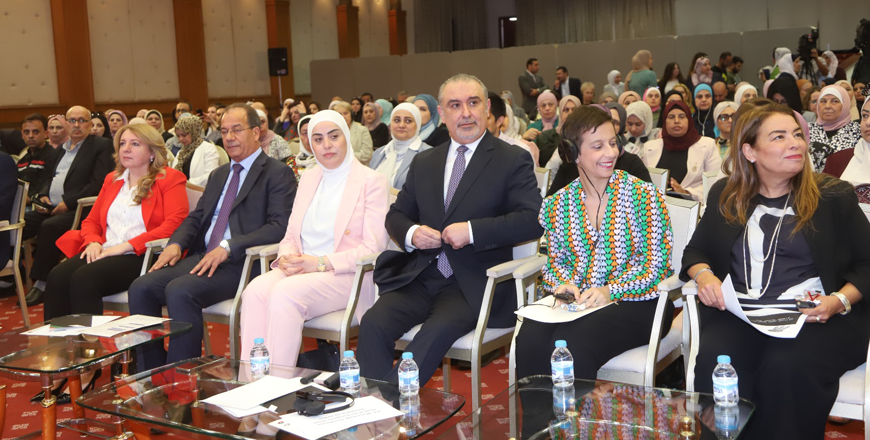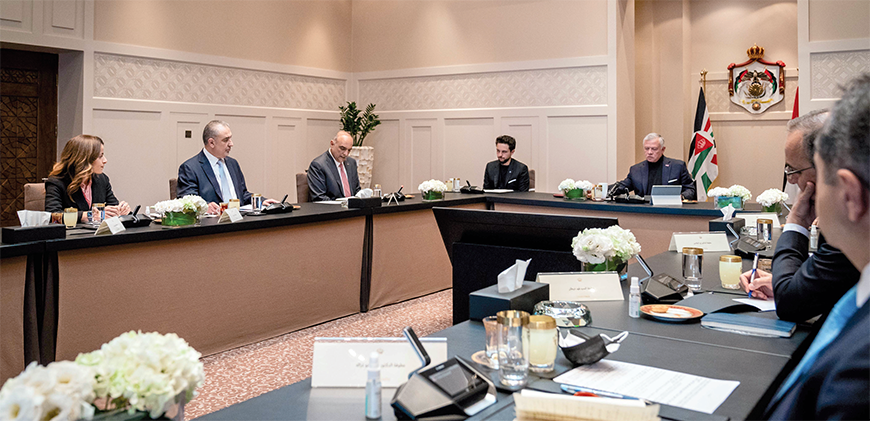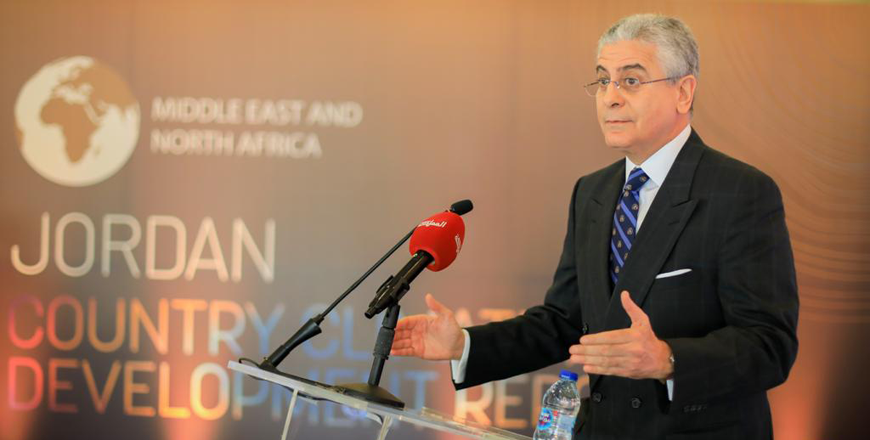You are here
Shraideh, economic team meet with World Bank chief economist
By JT - Feb 04,2023 - Last updated at Feb 04,2023

Members of the government's economic team, led by the Deputy Prime Minister for Economic Affairs and Minister of State for Public Sector Modernisation Nasser Shraideh, meet with Indermit Gill, Chief Economist of the World Bank Group, and an accompanying delegation, on Thursday (Petra photo)
AMMAN — Members of the government's economic team, led by the Deputy Prime Minister for Economic Affairs and Minister of State for Public Sector Modernisation Nasser Shraideh, on Thursday met with Indermit Gill, Chief Economist of the World Bank Group, and an accompanying delegation.
During the meeting, Shraideh noted that the World Bank is a “key partner” for Jordan, pointing out that this partnership has resulted in the successful implementation of multiple development goals in the Kingdom, according to a ministry statement released on Saturday.
Jordan has experienced several economic challenges in recent years, but the economy shows signs of recovery, Shraideh said.
Citing the Chamber of Industry's figures, Shraideh said that the Kingdom achieved a 2.7 per cent GDP growth in 2022, compared with 1.9 per cent in 2019.
The growth can be attributed to the increase in foreign investment, the revival of the tourism sector and the development of other sectors, as well as the growth of national industry, which directly and indirectly contributes over 45 per cent to the GDP, he said.
Shraideh also said that Jordan is open for new, innovative ideas and initiatives, especially in the education, health and social protection sectors.
In 2022, His Majesty King Abdullah launched the Economic Modernisation Vision for 2022-2033, which aims to improve the competitiveness of the Jordanian economy, drive growth and create job opportunities to stimulate the economy and put Jordan on an upward economy trajectory.
For his part, the chief economist said that the world is currently facing major ongoing challenges as a result of the COVID-19 pandemic, the Russian-Ukrainian war and the increase in global interest rates, which has been reflected in the rise of global inflation rates.
Growth rates will be slower than what was achieved in the previous 10 years, even if the world overcomes the economic challenges and crises it is currently facing, he said, urging Jordan to look ahead to future challenges, particularly the decline in women's participation in the economy.
He also praised Jordan's progress in the World Bank's “Ease of Doing Business” report for 2020, jumping 29 places.
Members of the government panel reviewed the government's measures and plans across a range of critical sectors, including the National Strategy for Digital Transformation, which aims to digitalise all services provided to citizens by 2025, as well as initiatives aimed at increasing women's participation in the economy, boosting investment and promoting a green economy.
The Economic Modernisation Vision’s executive programme and the Kingdom's fiscal and monetary policies were also highlighted during the review.
The World Bank delegation commended the breadth and integration of government programmes, and emphasised the need for a monitoring and evaluation system to assess their impact on the economy.
Related Articles
AMMAN — Deputy Prime Minister for Economic Affairs and Minister of State for Public Sector Modernisation Nasser Shraideh on Saturday highlig
AMMAN — His Majesty King Abdullah on Tuesday was briefed on the government’s progress in implementing the Economic Modernisation Vision in t
AMMAN — Climate-responsive development can bridge inequality, protect livelihoods and promote social cohesion, a World Bank Group report rel



















